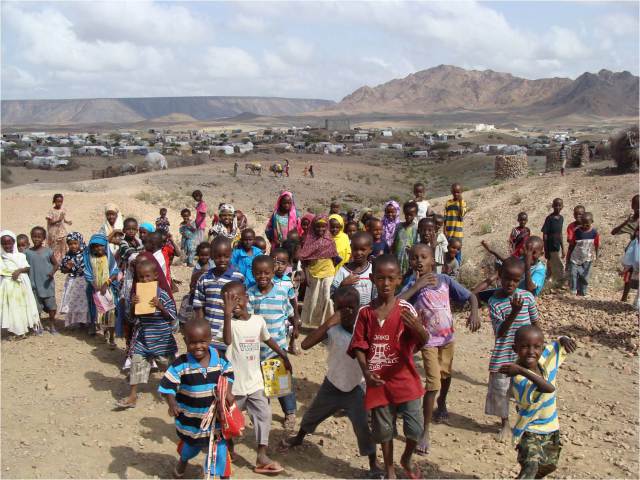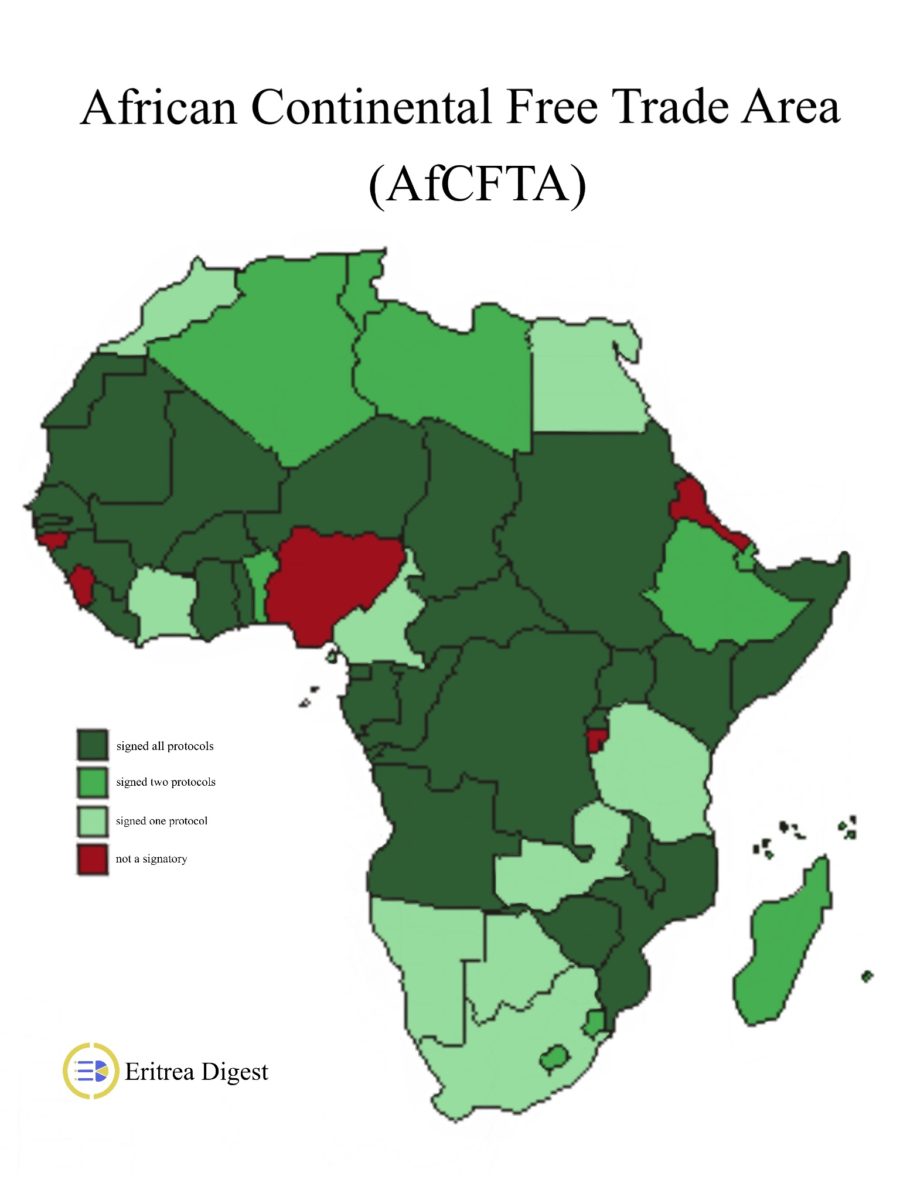“The State of Eritrea presents its initial and combined reports that encompass eight periodic reports overdue since its accession to the Charter.” So begins the first sentence of a 100-page report provided by the State of Eritrea to the African Commission on Human and People’s Rights (ACHPR). “Overdue” may be the one word that describes Eritrea. Setting time-limit on National Service and demobilization is overdue; the constitution is overdue; elections are overdue; freeing prisoners is overdue; ending undeclared state-of-emergency is overdue; and rule-of-law is overdue. So, of course, the report that the Government of Eritrea owed the African Charter is overdue. All because of (wait for it!) the Big Overdue: demarcation of the Eritrea-Ethiopia border and ending the state of quasi-war.
1. Article 62 of the African Charter on Human and Peoples’ Rights (ACHPR) states that “Each State Party shall undertake to submit every two years, from the date the present Charter comes into force, a report on the legislative or other measures taken, with a view to giving effect to the rights and freedoms recognised and guaranteed by the present Charter.” Eritrea, which ratified the ACHPR in 1999 without reservations, just submitted its 1st periodic report, 17 years after its due date. Its attitude towards an agreement it has ratified willingly—gross negligence, indifference, defiance, impunity—is the same attitude it has displayed to the civil liberties of the Eritrean people since it came to power in 1991.
2. The Government of Eritrea is not new to ACHPR: it was a defendant in a complaint filed by an Eritrean citizen (Mussie Ephrem) and a colleague (Dr. Liesbeth Zegveld) from the Netherlands (250/02.) The complaint alleged that the State of Eritrea is in violation of Article 2 (enjoyment of rights and freedoms), 6 (liberty and security), 7(1) (right to trial and self-defense) and 9(2) (right to expression.)
3. Since then, Eritrea’s human rights record has only worsened warranting an appointment of Special Rapporteur on Human Rights by the UN’s Human Rights Council as well as an appointment of Commission of Inquiry which determined, after interviewing hundreds of exiled Eritreans, that their Government has committed offenses that amount to crimes against humanity. Whereas, in 2003, it was found in violation of Articles 2, 6, 7(1) and9(2)—because the compliant was on behalf on 11 individuals—now it has expanded its violations to include Article 3 (equality of individuals before the law), Article 4 (respect for life and refraining from arbitrary deprivation); Article 5 (torture, degrading punishment); Article 8 (Free practice of religion); Article 10 (free association), Article 11 (freedom of assembly); Article 12.1 (freedom of movement); Article 12.2 (right to leave or return); Article 13 (right to freely participate in government); Article 14 (right to property); and Article 15 (right to work under equitable and satisfactory conditions.)
4. With its 1st Periodic Report which was submitted on 22 February, 2018 the Government of Eritrea is offering more of the same rationale for the violations that the ACHPR found inadequate and unpersuasive when it ruled against it in 2003.
5. In the following pages, the author will try to demonstrate that the Government of the State of Eritrea is systematically violating several of the articles enshrined in the ACHPR. I will reference the reply it presented to the African Commission, which is no more than its practice of collaterizing the people of Eritrea until it receives satisfaction for wholly unrelated claims it has on the United Nations.
6. Article 2: Every individual shall be entitled to the enjoyment of the rights and freedoms recognised and guaranteed in the present Charter without distinction of any kind such as race, ethnic group, colour, sex, language, religion, political or any other opinion, national and social origin, fortune, birth or any status.
7. While there are thousands of Eritreans who make compelling cases that they have been discriminated against solely based on their national/social origin and the ethnic group they belong to—the Eritrean Kunama and the Eritrean Afar social groups in particular—this section will focus on individuals who have been targeted on the basis of their political and religious affiliation.
8. Here, it is instructive to note what the Government of Eritrea is stating in its first National Report as it relates to its treatment of Eritreans on the basis of their religious affiliation:
9. There is no discrimination, exclusion, restriction or preference made on the basis of ethnicity, religion, social status, language, opinion, gender and race (Para w2). Eritrea is a secular state and freedom of religion is protected by law….[T]he Government has shouldered the obligations to ensure that this centuries-old religious tolerance and harmony is not perturbed by externally-induced new trends of Islamic or Christian fundamentalism that corrode the social fabric. (Para 65). In general, religious bodies have their respective hierarchies, conduct their own elections for their respective hierarchies – the Synod, the Dar-al-Iftae, and other decision making organs without any intervention from any side, including from the Government. (Para 66.)
10. After congratulating itself for its role in nurturing Eritrea’s religious tolerance and harmony, it explains how and why it effectively banned “new faiths” (unmentioned) and why it took “appropriate measures” against Jehovah’s Witnesses.
12. In other words, the Government of Eritrea’s claims are self-contradictory: on the one hand, it says that there “…is no discrimination, exclusion, restriction or preference made on the basis of…religion”; on the other hand, it says that some religions are not permitted to be practiced in the country. While it has not mentioned the “new faiths”, it has described its decision to ban them due to their refusal to comply with registration requirements and external funding sources. The “new faiths” are Evangelical, Pentecostal, Charismatic protestant churches and the actual reason for their ban is because the church elders were protecting the identity of their members whom the government arbitrarily labeled as enemies of the State. Many of the church elders have been arrested since 2002 and the State of Eritrea refuses to account for them.
13. The Government of Eritrea’s decision to revoke the citizenship of Eritrean members of Jehovah’s Witnesses dates back to 1995. It is important to state this because the State has explained every violation of Eritreans’ civil liberties within the context of the “external existential threat” posed by Ethiopia and there was no such threat, real or imagined, in 1995. In accordance with their religious teaching, the Jehovah’s Witnesses refused to enlist in the military; consequently, the government dismissed them from government jobs, nationalized their businesses and made them stateless. To this date, 23 years later, they have no recourse and hundreds of their members remain in jail.
14. Contrary to its claims, the Government of Eritrea routinely interferes in the religious affairs of all religious bodies. To cite just one example: the Patriarch of the Eritrean Tewahdo Church, His Holiness Abune Antonios, has been under house arrest since 2007 for the simple reason that he insisted on the autonomy of the church. A government-appointed Patriarch was named as his replacement.
15. Article 3: Every individual shall be equal before the law. Every individual shall be entitled to equal protection of the law
16. To demonstrate its compliance with this article, the Government of Eritrea claims that “Equality before the law is guaranteed and the process and administration is based on an independent judiciary comprising of hierarchical courts and Public Prosecution institution headed by an Attorney General.” – Paragraph 39
17. The first question here is “what law”? Most countries have a constitution which is ratified, and when a government passes a law, a citizen may challenge its constitutionality. But Eritrea, almost 27 years after independence, has no constitution. It is unclear whether the civil and penal codes the government published a few years ago are just published or in full effect (published in the Gazette of Eritrean laws) because the government frequently refers to proclamations that pre-date the publication of the codes.
18. Anyone with faint knowledge of the government knows that the hierarchy of the courts is irrelevant since they have no independence as the president’s office sits atop of the hierarchy and issues edicts arbitrarily. Eritrea is a country of the favored (generals, colonels and the connected political functionaries) and the rest (the conscripts, the youth, the exiled, the civilians or “gebar”.) And, “the rest” have no mechanism to ask why they are in prison, much less to challenge the authority of those who arrested them or made them to disappear.
19. Article 4: Human beings are inviolable. Every human being shall be entitled to respect for his life and the integrity of his person. No one may be arbitrarily deprived of this right.
20. The government makes no mention of the sanctity of life and the integrity of human beings. To the extent “life” is mentioned, it is always in the context of quality of life (social services) but not in the sanctity of recognizing its inviolability. There is no process for the State to deprive life as many citizens are unaccounted for and, often, families have been told to bury a citizen who died in the State’s prisons.
21. As the UN Human Right Council’s Commission of Inquiry documented in its initial report, the government has no mechanism to regulate the use of deadly force. These extrajudicial killings began in 1991 in Adiquala (execution of “collaborators”) and they haven’t stopped since: targeting anyone vaguely accused of endangering national security whether that is summary execution of 150 Muslims from Keren, Agordat, Senafe, Asmara in 1994; Kunama “collaborators” in 2000; and youth attempting to “illegally” cross borders throughout 2000s.
22. Article 5: Every individual shall have the right to the respect of the dignity inherent in a human being and to the recognition of his legal status. All forms of exploitation and degradation of man, particularly slavery, slave trade, torture, cruel, inhuman or degrading punishment and treatment shall be prohibited.
23. In paragraph 49, the Government of Eritrea says, “Torture of any kind is not condoned by Eritrea’s domestic laws and is punishable by law. Furthermore, the norm of a society that is founded on extended family and strong communal ties does not allow such reprehensible practices.”
24. Whenever the government of Eritrea is asked whether it is obeying its own laws, it cites its laws. It is as if it doesn’t know that it is being accused of breaking its own laws or international treaties it has signed. Leaving aside whether indefinite military conscription qualifies as slavery in its modern definition, there has been substantive testimony presented by Eritreans who have been subjected to cruel, inhuman and degrading punishment that meets the definition of torture.
25. For over a decade now, every country report on Eritrea conducted by Amnesty International, Human Rights Watch etc has documented it. The world learned of the form of punishment the State inflicts on the citizens including cuffing and beating with chains and pipes; tying legs behind back and suspending citizens on a tree (“helicopter”) for days; hands behind back until elbows tied together and laying face down (Otto); spreading out hands and tying them to branches (“Jesus Christ”); tying by elbows to tree with toes barely touching ground (“Almaz”), Ferro, Gomma, etc. Victims gave descriptions that became sketch art, which has come to define Eritrea. In 2015, it was more comprehensively recorded for posterity by UN’s Human Rights Council based on the testimony of 300 Eritreans:
The recurrence, coherence, and similarities of the many torture incidents… is a clear indication of the existence of a deliberate policy to inflict torture in a routine manner in the context of investigations and interrogations as well as during national service
26. When the Government of Eritrea denies it commits torture routinely, one is left with the impression that it doesn’t know the legal definition of torture. Per the UN Convention Against Torture:
For the purpose of this Convention, the term “torture” means any act by which severe pain or suffering, whether physical or mental, is intentionally inflicted on a person for such purposes as obtaining from him, or a third person, information or a confession, punishing him for an act he or a third person has committed or is suspected of having committed, or intimidating or coercing him or a third person, or for any reason based on discrimination of any kind, when such pain or suffering is inflicted by or at the instigation of or with the consent or acquiescence of a public official or other person acting in an official capacity.
27. Article 6: Every individual shall have the right to liberty and to the security of his person. No one may be deprived of his freedom except for reasons and conditions previously laid down by law. In particular, no one may be arbitrarily arrested or detained
28. The Government of Eritrea responds: “There are also ample provisions in the Transitional Penal Code (for instance provisions that punish all forms of physical injury [Articles 538, 539, 544 etc.]) that protect the person and liberty of any person…” (Paragraph 308) “The Government did not arbitrarily arrest the 11 persons. The National Assembly at its 14th Session, held from 29 January to 2nd February 2002, discussed a report concerning the nature of the criminal acts committed by these people. The National Assembly deplored the grave acts perpetrated by the detainees and mandated the Government to handle the matter appropriately.” (Paragraph 294)
29. Of note, the word “freedom” rarely appears in the document except with the accompaniment of “fighter” (freedom fighter), just like “integrity” doesn’t appear without “territorial” (as in territorial integrity.) Eritrea: A Land of Freedom Fighters Fighting For Territorial Integrity.
30. As for the case of the arbitrary arrest of the G-15 (“11 persons”), the Government of Eritrea must have forgotten that in response to the complaint filed by Mussie Ephrem, it had lost the case: the African Commission ruled that the State of Eritrea is indeed in violation of all the articles cited, demanded the release of the prisoners on whose behalf the complaint was filed and further recommended, “the State of Eritrea compensates the above-mentioned persons.” One hopes that the African Commission, unlike the State of Eritrea, has institutions and institutional memory.
31. Article 7: Every individual shall have the right to have his cause heard. This comprises: The right to an appeal to competent national organs against acts of violating his fundamental rights as recognized and guaranteed by conventions, laws, regulations and customs in force; The right to be presumed innocent until proved guilty by a competent court or tribunal; The right to defence, including the right to be defended by counsel of his choice; The right to be tried within a reasonable time by an impartial court or tribunal.
32. According to its report, the Government of Eritrea has “enacted and implemented 178 proclamations and 125 legal notices (72 proclamations and 82 legal notices of these enacted during the reporting period). These served as other sources of law and also reflected the relevant internationally accepted norms. The commitment to strengthen the State through viable governance is thus apparent. This is in fact reflected in the prevailing social cohesion and harmony, peace and stability, dignified life, enjoyment of rights and the responsible participation of citizens.” (Para 16.) The government provides defendants their own counsel, it provides interpreters including sign language for the hearing-impaired.
33. This may indeed be the case for crimes committed by citizens against their compatriots (theft, manslaughter, murder, embezzlement, etc.) The problem is when the crime is alleged to be against the State.
34. This was partly addressed in the complaint brought forth by Mussie et al, a case where the African Commission held the view that “the lawfulness and necessity of holding someone in custody must be determined by a court or other appropriate judicial authority. The decision to keep a person in detention should be open to review periodically so that the grounds justifying the detention can be assessed. In any event, detention should not continue beyond the period for which the State can provide appropriate justification. Therefore, persons suspected of committing any crime must be promptly charged with legitimate criminal offences and the State should initiate legal proceedings that should comply with fair trial standards as stipulated by the African Commission in its Resolution on the Right to Recourse and Fair Trial and elaborated upon in its Guidelines on the Right to Fair Trial and Legal Assistance in Africa.” Nothing has changed since 2003, except the magnitude of the crimes.
35. Article 8:Freedom of conscience, the profession and free practice of religion shall be guaranteed. No one may, subject to law and order, be submitted to measures restricting the exercise of these freedoms.
36. We have already covered this in Article 2 above. The State of Eritrea is in violation of this article of the African Charter as well.
37. Article 9: Every individual shall have the right to receive information. Every individual shall have the right to express and disseminate his opinions within the law.
38. The State replies: “The fundamental principle in the National Charter, Eritrea’s Constitution of 1997 [sic] and the national codes and proclamations is that citizens have the right for lawful expression and opinion without interference. Citizens are both participants and beneficiaries of information and ideas and the ground is leveled without discrimination. This, however, demands responsibility from every citizen and is related to the collective interest of the nation and the society. Hence, it is bound by Eritrean Law and demands protection of national security, public order and the basic values of the nation as well as respect to others. In this regard, public media has been strengthened and reflects the truth and reality of national development.”
39. The government further goes on to state that Eritreans enjoy unrestricted access to satellite TV and unrestricted, albeit slow, access to the Internet, specially social media.
40. The problem with the answer is that it is either incomplete or false. What, for example, is the nation’s budget? What is its census? Both are Information 101 for a citizen but they have been a closely-held secret for decades. One of them–census–just became unclassified by the State–and only because it serves the interest of the government.
41. The first time a census of Eritrea was taken was in 1947. That’s when the Four Power Commission visited Eritrea and told us the population was 850,000. Throughout the armed struggle period, the Front’s literature said Eritrea’s population was 2.5 million. In 1993, when Eritrea held its referendum, 1,200,997 were registered worldwide to vote, of whom 861,074 were living inside Eritrea. If (given the overwhelming enthusiasm) one makes the assumption that only 5% of those who were eligible to register to vote didn’t register (eligible= at least 18 year old Eritrean) , then we can estimate the over-18 population of Eritreans living in Eritrea was 906,394. If one uses UNICEF ratio of under-18 to over-18 for the period (1:1), then we could say Eritrea’s total population in 1993 (resident Eritreans) was double that of 906,394, ie 1,812,787.
42. In 1997, the Government of Eritrea conducted a survey (not a census) of Eritrea and reported that the population is estimated to be between 2.5 million and 3.5 million. Thus, one can assume that every estimate which was given to us since then by the New York Times in 1996 that it was more than 3 million (here) or the CIA World Factbook telling us the July 2017 population estimate is 5.9 million (here) appears to be a SWAG. A scientific wild ass guess.
43. Now we learn “The Government’s estimate of the resident population is 3.65 million (2015).” But only by way of disputing the World Bank’s estimate of the population of Eritreans in Eritrea (5.1 million) which would deflate Gross Domestic Product (GDP) per capita. To make this point, they provide the only link in the entire report. Ok. So, if the population of Eritreans in Eritrea is 3.65 million and, a few years ago, in response to the UN’s Commission of Inquiry, the Ministry of Foreign Affairs (MoFA) told us that Eritreans who live outside the country are “one million strong“, what does that say about a country which has exiled and/or not made to feel welcome over 27% of its population?
44. Article 10:Every individual shall have the right to free association provided that he abides by the law. Subject to the obligation of solidarity provided for in Article 29, no one may be compelled to join an association.
45. Article 11: Every individual shall have the right to assemble freely with others. The exercise of this right shall be subject only to necessary restrictions provided for by law, in particular those enacted in the interest of national security, the safety, health, ethics and rights and freedoms of others
46. The Government says: “Freedom of association and assembly is also respected by law. The Legal Notice No 5 of 1992 on “Registration of non-government national organizations and associations” also set the right conditions for their establishment and operation. During the reporting period more
than 33 national organizations are operational. Eritrea’s labor Proclamation also upholds
workers’ rights and there are about 190 trade unions functioning at present.”
47. Here, the government can credibly argue it is in compliance with the African Charter because the African Charter is weak when it comes to freedom of association and assembly since it defers to the State to define what is lawful and what is not. Suffice to say that every association in Eritrea–every trade union, every youth organization, every women’s organization, every association for the visually impaired, hearing impaired–is controlled by the ruling party and, thus, the government and, therefore, does not fit the definition of “civil society.” As for freedom to assemble freely with others, because the African Charter qualifies it “subject only to necessary restrictions provided by law”, the government can define that law in times of “external existential crisis” and severely restrict it to the point that the freedom is non-existent.
48. Article 12: Every individual shall have the right to freedom of movement and residence within the borders of a State provided he abides by the law. Every individual shall have the right to leave any country including his own, and to return to his country. This right may only be subject to restrictions, provided for by law for the protection of national security, law and order, public health or morality. Every individual shall have the right, when persecuted, to seek and obtain asylum in other countries in accordance with the law of those countries and international conventions.
49. At a time when over 27% of Eritrea’s population lives in exile, at a time when hundreds of thousands of Eritreans live in refugee camps of Sudan and Ethiopia, at a time when tens of thousands of Eritreans live uncertain lives in Israel, at a time it is acknowledging Eritrea’s resident population is only 3.65 million, the Government of Eritrea says, “…irrespective of the manipulated statistics sensationally forecasted to tarnish the image of Eritrea, the real number of illegal Eritrean migrants is at its lowest. This is a result of the promising Eritrea‟s progress, continuous advocacy, strong law enforcement and the exposure of the illusions tangled to migrant “heavenly western life” expectations propagated in the failed campaign. Eritrea‟s engagement with some western countries to rectify their immigration policies on Eritreans has also played a part.
50. According to the government, the Eritrean youth continue to serve in indefinite National Service because of “external existential threat”, and those who have left the country did so because of conspiracies by the United States and other pull factors designed to tarnish the image of Eritrea. It is everybody else’s fault but its own.
51. Article 13: Every citizen shall have the right to participate freely in the government of his country, either directly or through freely chosen representatives in accordance with the provisions of the law. Every citizen shall have the right of equal access to the public service of the country. Every individual shall have the right of access to public property and services in strict equality of all persons before the law.
52. You may be thinking that a government and party whose chief says that those who wish to create a political environment outside the People’s Front can do so in the moon or other planets has categorically rejected their right to “participate freely in the government of his country”? You may be thinking that those who call for constitutionalism and elections being called enemies of the State and foreign agents are being denied their right of “equal access to the public service of the country”? You may be right. You are right. But let’s see what the Government of Eritrea has to say about it: “The basic values of liberation, freedom and democracy continue to be the core for the nation building process… (para 38) and “Since its inception, the Sawa Education and Training center has graduated over 500,000 national service members and played a dynamic role in national defense, national development and the promotion of the basic values of liberation, freedom and democracy.” Freedom and democracy just got redefined to mean constricted movement and taking orders.
53. But wait, there is more:
54. Furthermore, the right to elect and be elected in the assemblies at all levels is respected and protected on the basis of Proclamation 86/1996. Accordingly, the citizens living in each of the six administrative regions are represented by members of elected assemblies. Through regular yearly meetings, the elected members at each level assess the situation and issue guidelines to the local and regional administrations. They also represent their constituency in national policy and development issues and serve as a means through which the demands and needs of the people are communicated to higher authorities. The role of the people in state building through elected representatives has evolved. However, further strengthening of the institutional capacity and organizational basis of the
assemblies still remains a major task. Furthermore, and as has been mentioned earlier, existential external threats have adversely affected the pace of the political process.
Conclusion
55. ACHPR, the African version of the bill of rights, was the last one to arrive–-long after European and South American–-and the drafters explained that when they were writing it that they would neither copy the existing European structure, nor “be original for the sake of originality.” But they were. Unlike the European, Asian and South American instruments, this one has individual and group rights (human and Peoples to recognize Africa’s collectivism and unique colonial history) and, also unlike the European and American ones, this one imposes a DUTY on individuals and groups. Duty to family, the nation, to pay taxes and to promote African Unity. Unusual for a document that is supposed to highlight rights. A lot of the rights have many qualifiers– “provided that he abides by law”, “except for reasons and conditions previously laid down by law”, “subject to law and order”, “within law”– that any old dictator can render null and void. Still, STILL, even by those low standards the PFDJ is failing. But because the African Union never got around to creating and funding its own African Court, it has no way to enforce its decisions.
56. So, in the end, all we have learned from this 100-page document is that Eritrea’s resident population is 3.65 million. We learned this indirectly (reply to ACHPR), and for entirely self-serving reasons the Government has (we are good stewards of the economy.) Just as we learned three years ago that Eritrea’s Diaspora population was one million: indirectly (reply to CoI) and for self-serving reasons (we are not blackmailing ALL of them.) But here’s something sad: not counting the 250,000 IDPS, in 1992, on the eve of referendum, the IOM estimated the population of Eritreans in the Diaspora was as follows:
Sudan: 530,000
Ethiopia: 300,000
Saudi Arabia: 60,000
Europe: 40,000
North America: 20,000
57. Since there has been no attempt to invite Eritreans in Sudan to their country (Yemane Gebreab disingenuously said this is because “Sudan is their second home”), since Eritreans in Saudi Arabia are being forced to “self-deport” because of Saudi Arabia’s brutal immigration policies (with many re-migrating to Egypt, Turkey, Sudan but few to Eritrea), the most dramatic change since 1992 is likely to be a significant increase in Eritrean population in Europe and North America. So, Eritrea under PFDJ, 26 years later, has only one core competence: disappearing and exiling its people. And arresting underage citizens. What Eritreans are facing is, to borrow a phrase, “internal existential threat.”
 a, so you should be ok. But don’t drink alcohol even if it is complementary: really, is that the impression you want to give your folks, arrive in drunken stupor?
a, so you should be ok. But don’t drink alcohol even if it is complementary: really, is that the impression you want to give your folks, arrive in drunken stupor?
 s tough sturdy kids. So all the things you say and do that gets you complimented in your adopted country–the way you dress, the way you speak–don’t get your feelings all hurt if Eritrean children laugh at you. And they will laugh at you. Specially if you are sagging. We call that jelgad. You can’t be writing posts about “shet me’anta” (buckled up) and then be dragging. What is wrong with you? Man up. And you young ladies: don’t mention the brand name of your purses and jeans: nobody cares.
s tough sturdy kids. So all the things you say and do that gets you complimented in your adopted country–the way you dress, the way you speak–don’t get your feelings all hurt if Eritrean children laugh at you. And they will laugh at you. Specially if you are sagging. We call that jelgad. You can’t be writing posts about “shet me’anta” (buckled up) and then be dragging. What is wrong with you? Man up. And you young ladies: don’t mention the brand name of your purses and jeans: nobody cares. These are where some of your countrymen live. Just ask your PFDJ Senior office to see them. It is a form of Zura Hagerka (tour your country.) I mean what’s the worst thing that can happen? Clearly, our government treats its people, including prisoners, real well, and wouldn’t it be swell for you to come back to your country and tell everyone what you have seen? The worst they will say is no. They may say, “why, would you like to join them?”, but that’s just their sense of humor.
These are where some of your countrymen live. Just ask your PFDJ Senior office to see them. It is a form of Zura Hagerka (tour your country.) I mean what’s the worst thing that can happen? Clearly, our government treats its people, including prisoners, real well, and wouldn’t it be swell for you to come back to your country and tell everyone what you have seen? The worst they will say is no. They may say, “why, would you like to join them?”, but that’s just their sense of humor. Humanitarian strategy UNICEF and partners will continue to mainstream humanitarian response within
Humanitarian strategy UNICEF and partners will continue to mainstream humanitarian response within As of 31 October 2016, UNICEF had received US$7.8 million against the US$16 million appeal (49 per cent funded). Some 13,000 children under 5 with SAM and 34,000 children under 5 with MAM were treated and 376,000 children received vitamin A. In addition, 30,000 pregnant women and lactating mothers and children under 5 living in hard-to-reach areas benefited from blanket supplementary feeding (less than planned due to limited funding). Approximately 97,000 children were immunized against measles and 70,000 children affected by acute watery diarrhoea received life-saving curative interventions. UNICEF surpassed its targets for vitamin A and acute watery diarrhoea support by reprogramming regular programme funds and liaising with the Ministry of Health and the World Health Organization (WHO). A total of 31,000 people benefited from improved access to safe water, including 10,500 people in seven communities with new solar-powered water supply schemes, and 20,500 people in cholera-affected regions through the provision of water treatment supplies for one month. Key preventative messages on protection, education, health and nutrition reached more than 1 million people in highrisk areas. While 5,000 children were reached with psychosocial support, fewer children than planned accessed mine risk education and basic education due to limited funding for child protection and education activities.
As of 31 October 2016, UNICEF had received US$7.8 million against the US$16 million appeal (49 per cent funded). Some 13,000 children under 5 with SAM and 34,000 children under 5 with MAM were treated and 376,000 children received vitamin A. In addition, 30,000 pregnant women and lactating mothers and children under 5 living in hard-to-reach areas benefited from blanket supplementary feeding (less than planned due to limited funding). Approximately 97,000 children were immunized against measles and 70,000 children affected by acute watery diarrhoea received life-saving curative interventions. UNICEF surpassed its targets for vitamin A and acute watery diarrhoea support by reprogramming regular programme funds and liaising with the Ministry of Health and the World Health Organization (WHO). A total of 31,000 people benefited from improved access to safe water, including 10,500 people in seven communities with new solar-powered water supply schemes, and 20,500 people in cholera-affected regions through the provision of water treatment supplies for one month. Key preventative messages on protection, education, health and nutrition reached more than 1 million people in highrisk areas. While 5,000 children were reached with psychosocial support, fewer children than planned accessed mine risk education and basic education due to limited funding for child protection and education activities.





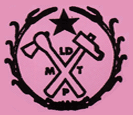




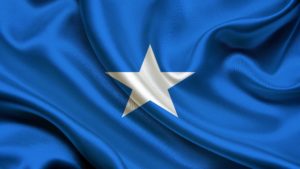 Somalis just had an election and they elected a new president. Well, Somalis didn’t, it wasn’t one-adult-one-vote. What happened was some Somali elders from all its clans, appointed delegates (14,000 of them), and these delegates elected a parliament (328 of them), and this parliament elected a president. Because the Somalia constitution says the president had to get a 2/3 supermajority, there were three rounds. They started with 26 candidates, and by the time they got to the 2nd round, there were three candidates: the former incumbent, the incumbent, and the eventual winner; by the time they got to the 3rd round, there were two candidates standing: the incumbent and the eventual winner. The leader didn’t have the 2/3 majority but he was leading the number 2, the incumbent, by such a huge margin, the incumbent conceded and Somalia now has a new Head Cheese.
Somalis just had an election and they elected a new president. Well, Somalis didn’t, it wasn’t one-adult-one-vote. What happened was some Somali elders from all its clans, appointed delegates (14,000 of them), and these delegates elected a parliament (328 of them), and this parliament elected a president. Because the Somalia constitution says the president had to get a 2/3 supermajority, there were three rounds. They started with 26 candidates, and by the time they got to the 2nd round, there were three candidates: the former incumbent, the incumbent, and the eventual winner; by the time they got to the 3rd round, there were two candidates standing: the incumbent and the eventual winner. The leader didn’t have the 2/3 majority but he was leading the number 2, the incumbent, by such a huge margin, the incumbent conceded and Somalia now has a new Head Cheese.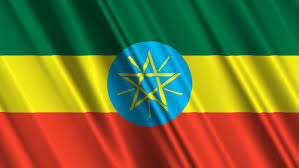 If Somalia requires that the president have the support of 2/3 of the voters, Ethiopia requires that the winner have 50% plus 1. This is not exactly a good recipe for a diverse country of 90 million people with 88 languages. Not good, that is, for the governed: it is a sweet deal for the governors. Ethiopia, which has a parliamentary system where parliamentarians elect a prime minister, last had Federal parliamentary elections in 2015. The gigantic, super-dominant party is not a party: it is People’s Revolutionary Democratic Front, a coalition of parties which dominate each of the 9 regional states. The other parties, to the extent they are allowed to exist, are not competitive and in the extremely rare case where they are, the winner-takes-it-all formula continues to disenfranchise a large segment of the population with Ethiopia, every 5 years, claiming 97%, 98% and 100% wins.
If Somalia requires that the president have the support of 2/3 of the voters, Ethiopia requires that the winner have 50% plus 1. This is not exactly a good recipe for a diverse country of 90 million people with 88 languages. Not good, that is, for the governed: it is a sweet deal for the governors. Ethiopia, which has a parliamentary system where parliamentarians elect a prime minister, last had Federal parliamentary elections in 2015. The gigantic, super-dominant party is not a party: it is People’s Revolutionary Democratic Front, a coalition of parties which dominate each of the 9 regional states. The other parties, to the extent they are allowed to exist, are not competitive and in the extremely rare case where they are, the winner-takes-it-all formula continues to disenfranchise a large segment of the population with Ethiopia, every 5 years, claiming 97%, 98% and 100% wins.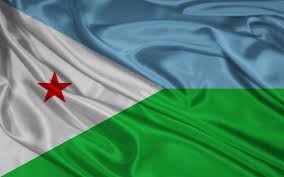 In April of 2016, Djibouti had its presidential election and the winner received 87% of the vote. In the first draft. In direct elections. And that was his fourth five-year term: he has been president since 1999. There were 7 candidates and if you think the 6 should have presented a united front: he received 8 times their combined total and it wouldn’t have helped.
In April of 2016, Djibouti had its presidential election and the winner received 87% of the vote. In the first draft. In direct elections. And that was his fourth five-year term: he has been president since 1999. There were 7 candidates and if you think the 6 should have presented a united front: he received 8 times their combined total and it wouldn’t have helped.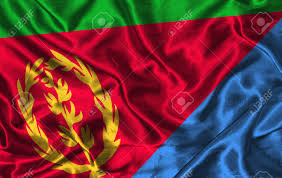 The Government of Eritrea is also made up of a Front, this one being for Democracy and Justice. This Front has been in power ever since Eritrea became an independent state in 1991. In 2016, those who want to discuss Eritrean Democracy and Justice were invited by Eritrea’s president to pursue that in Mars or the Moon because multiparty elections will never happen in Eritrea. We regret that we have not received any updates from our correspondent to Mars and the Moon.
The Government of Eritrea is also made up of a Front, this one being for Democracy and Justice. This Front has been in power ever since Eritrea became an independent state in 1991. In 2016, those who want to discuss Eritrean Democracy and Justice were invited by Eritrea’s president to pursue that in Mars or the Moon because multiparty elections will never happen in Eritrea. We regret that we have not received any updates from our correspondent to Mars and the Moon.
